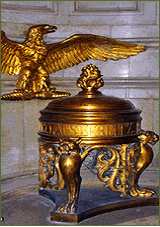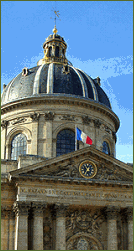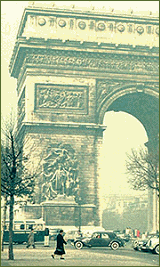|
It is as early as the 12th century that the distinctive character
of the Paris districts started emerging with the Cathedral
of Notre Dame de Paris being built in 1163 in the Ile de la Cite area of Paris, which
was the centre of government and religious life.
In 1180 Philippe Auguste became the king, and under his rule there were a number of major
building works, which were carried out in Paris, including a new city wall along with the
construction of the Palais du Louvre, paving the streets and establishing a covered market
at Les Halles.
When Edward III of England claimed the French throne by virtue of his decent, but the
French barons rejected this, and hence the Hundred Years war began and the history of Paris in the 14th century was dictated by
outbreaks of plague, political violence and uprisings.
The English then captured Paris in 1420, but unfortunately Henry V of England died at the Chateau de Vincennes, just outside Paris
city in 1422 and despite the assistance of Joan of Arc, Charles VII of France tried to
retake Paris but failed in 1429.
Of any Valois monarch, Francois I probably had the greatest impact on the transformation
of Paris, including the Louvre and establishing a
glittering court including people such as Leonardo da Vinci, and along with King Henri IV
who made Paris his place of residence. He then undertook a number of major public
works in the city that included the construction of the Pont Neuf, Saint-Louis Hospital,
Place des Vosges and the Place Dauphine, plus he also made extensions to the Louvre.
Paris became the intellectual and cultural capital of the Western world during the latter
half of the 18th century, as it became a centre of the enlightenment and new thinking,
which was encouraged by the state, with King Louis's mistress, Madame de Pompadour,
supporting the city's intellectuals and prompting the king to construct striking new monuments.
Unfortunately, it was not long after that Russian and Austrian armies invaded France on
the 31 March 1814, with Paris falling to the Russians, which was the first time in around
400 years that the city had been conquered by any foreign power, but Paris was again
retaken back by the French and this city continued to grow and expand with more famous
monuments being built.
|
|




